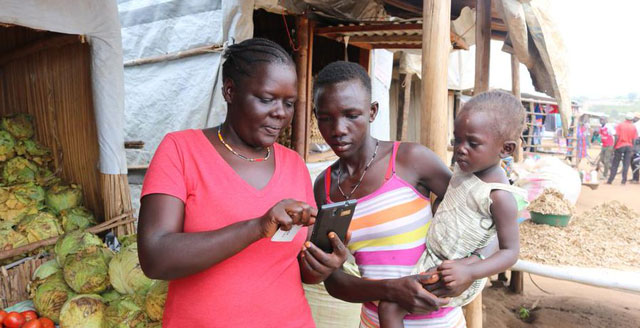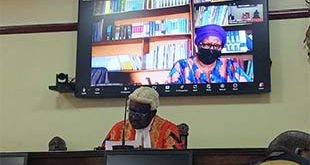
Kampala, Uganda | THE INDEPENDENT | Uganda Microfinance Regulatory Authority is drafting new guidelines to regulate digital lending.
Digital money lenders are emerging as the latest innovation to small loans extended through online platforms or digitally but there have been concerns that they are not regulated.
But the emergence of this new set of lenders has not been flawless. One of the major complaints has been exorbitant interest rates charged on a weekly basis.
They have also been complaints that lenders who mainly target mobile phone users tend to invade the privacy of the borrowers by demanding access to their phone book contacts.
Vannessa Nakawooya, the UMRA manager for microfinance institutions, says only digital lenders approved by the Authority will be eligible to offer the services.
Like it is the practice with the telecom, banking and insurance, one of the requirements will be that a digital money lender will have to disclose that they are regulated by the Uganda Micro Finance Regulatory Authority.
She was at speaking consultative meeting organized to update digital lenders about the proposed regulation. Digital lending operators were expected to have input in the proposed regulations that are still in draft.
Nakawooya said that some companies have been lending through several applications which are not appended to their licensed names. That, she said was another anomaly the guidelines are seeking to rectify.
“The guidelines demand that an application must indicate that it is operated by a company regulated by UMRA,” she said.
Part of the moves will ensure customer protection and source of funds among others. UMRA is mandated with the regulation of Tier 4 microfinance institutions, and money lenders as per the 2016 Money Lender’s Act.
The manager for compliance at the personal data protection office affiliated to NITA Uganda, Baker Birikujja said digital money lenders are required to register with his office, but to date, many of them have not fully complied with that regulation.
Birikujja said his office has received several complaints against digital lenders accused of misusing borrowers’ data. Some, he said have gone to the extent of threatening their customers in case of default.
Nelson Kituuka, the managing director of Card-Pesa, a digital money lending company, says that the players in this field, have a lot of challenges operating the business under the prevailing environment.
According to Kituuka, the high-interest rates are a result of the high operational fees they pay to internet service providers.
Digital money lenders also raised concerns about the rate of default by borrowers. He suggested that the guidelines should also ensure that borrowers are compelled to repay the loans.
“We have a problem with nonpayment from the people whom we lend to, but the guidelines are single-sided and only focus on our side. Why can’t there be a mechanism to force the borrowers to pay our money? We can organize for an automatic collection from their mobile money accounts” one of the lenders
The Global Findex 2021, indicates that 66 percent of Ugandans, have formal accounts which are mainly driven by the penetration of mobile money.
The report found that 75 percent of Ugandans borrowed money in 2021, 57 percent borrowed from friends and family, 19 percent from formal financial institutions, and 6 percent obtained them using mobile accounts.
Digital money lending is spreading fast across the country as part of the efforts to facilitate e-commerce. The products have also been identified as the driver to financial inclusion by extending micro-loans to communities or individuals no reached by the formal banking sector.
****
URN
 The Independent Uganda: You get the Truth we Pay the Price
The Independent Uganda: You get the Truth we Pay the Price


